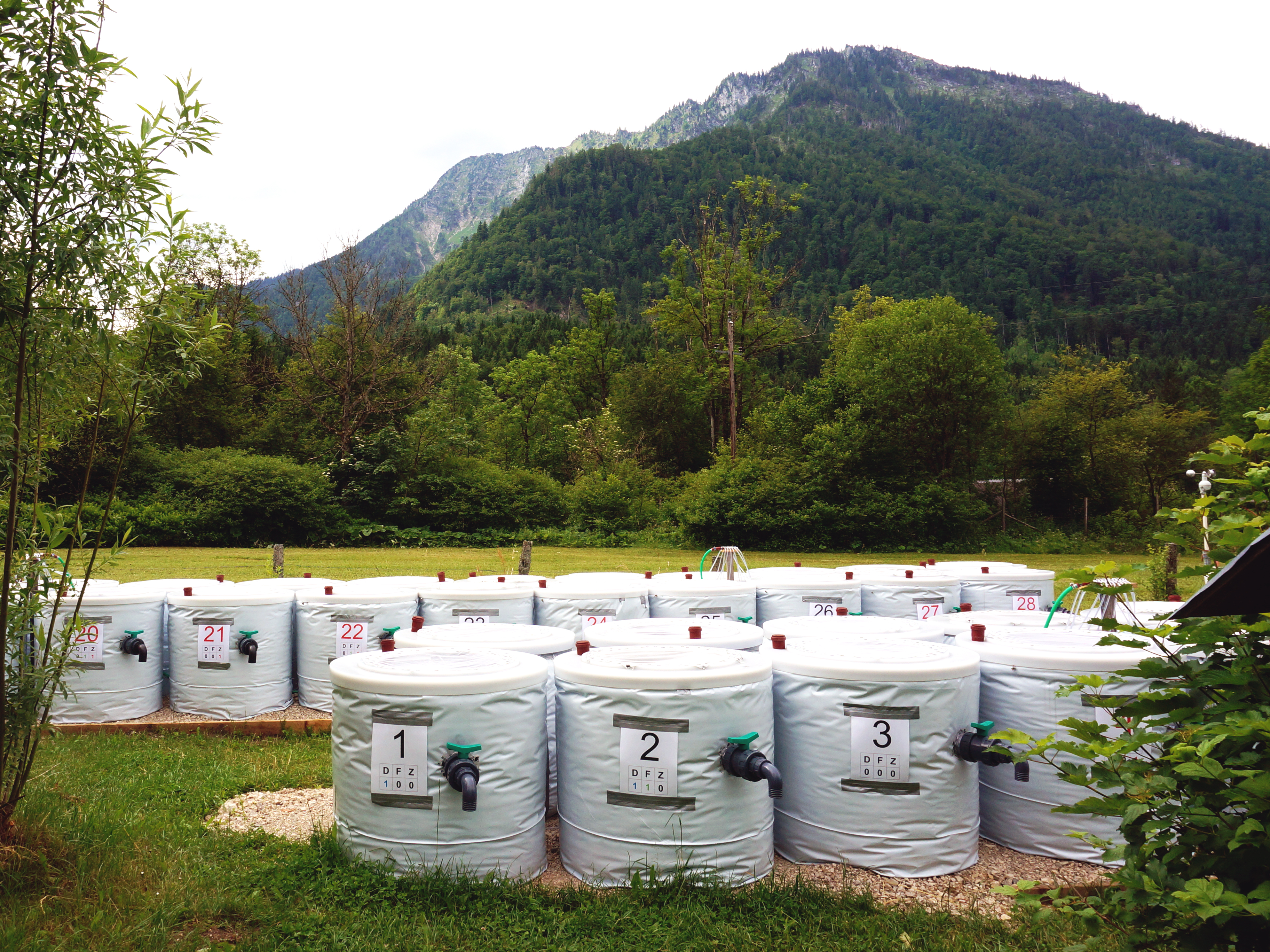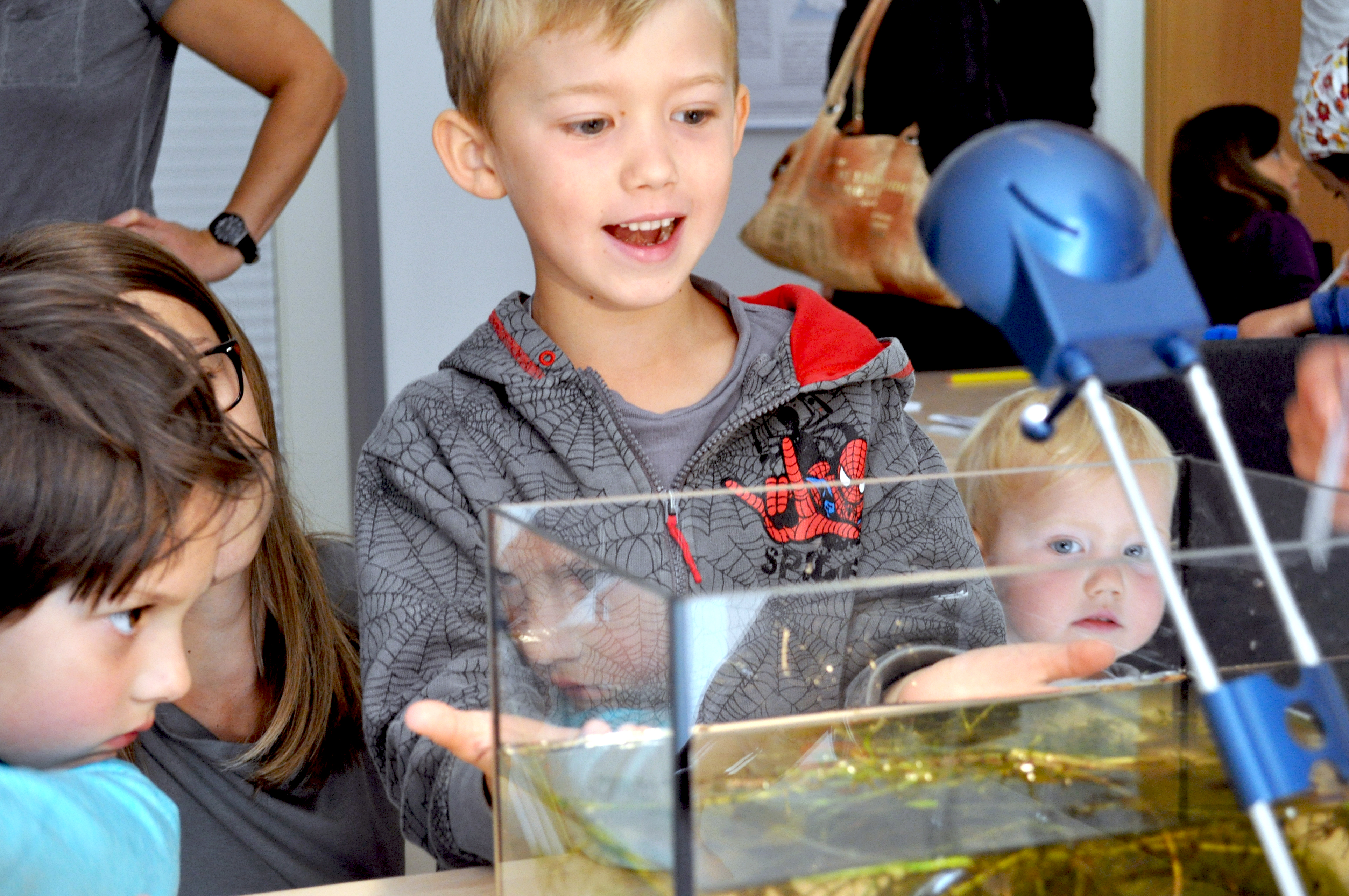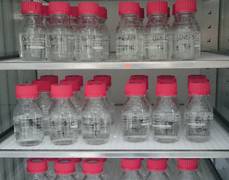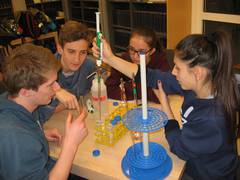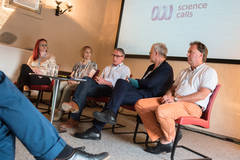WasserCluster Lunz is one of nine partners, from six different countries, working on the project „FRAMWAT – Framework for improving water balance and nutrient mitigation by applying small water retention measures“. Under the leading of the Warsaw University of Life Sciences they will work the next three years. FramWat will provide decision makers with appropriate tools to incorporate Natural (Small) Water Retention Measures (N(S)WRM) into the next cycle of River Basin Management Plans and offer guidance and raise awareness about the importance of horizontal integration of different planning frameworks.
More information you find here.
WasserCluster Lunz was part of the "Forschungsfest NÖ" which took place on Friday 15th September 2017 at the Palais Niederösterreich. The Forschungsfest NÖ is about interaction between scientists and especially children and the youth. Main goal was to explain scientific topics in a comprehensible way and to make youth curious about science.
More information you find here
WasserCluster researcher Zsófia Horváth and Robert Ptacnik successfully applied for a sDiv working group, sTURN.
The project will bring together 21 scientists to establish a mechanistic link between spatial and temporal turnover in metacommunities, and will include exciting brainstorming at the iDiv centre in Leipzig.
Read more here
More than 60 stations to explore for the whole family wait for guests at the „NÖ Forschungsfest“, where also WasserCluster takes part. The event takes place on September 15th at the Palais Niederösterreich (Herrengasse 13, 1010 Vienna) from 15:00 until 23:00.
From a landscape perspective, it is less known how the connectivity of lakes to other fluvial systems in the hydrological continuum affects biogeochemical processes. Masumi Stadler investigated this in her master thesis with the title “Spatio-seasonal variability in dissolved organic matter optical properties and reactivity in a sub-alpine lake” under supervision of Martin Kainz and co-supervision of Elisabet Ejarque-Gonzalez. In July Masumi Stadler successfully finished her thesis. Congratulations!
In freshwater systems, dissolved organic matter (DOM) mainly originates from terrestrial and aquatic primary production, respectively, and its biodegradability is expected to vary due to differences in their biochemical composition. Still, the interaction of DOM of differing origin and the aquatic microbial population remains widely debated. Furthermore, how much carbon is retained in the lake system or exported to connected fluvial systems ultimately affects our understanding of the global carbon cycling. To address these questions, changes in DOM biodegradability and the consequent growth of microorganisms were assessed in dark bioassays for 20 days along a stream-lake continuum over four seasons. PARAFAC analysis modelled six components, of which three correspond to humic- and fulvic-like and the remaining three to protein-like fluorophores. Protein-like components comprised more than 50% of the relative proportion in the lake epilimnion in spring and summer, while the humic-like proportion was highest in the inflow with a cumulative fraction up to 85% in summer. Despite its high optical allochthonous DOM signature and lowest initial abundance, highest microbial growth rates were observed in the inflow (0.0076 ± 0.0011 cells mL-1 h-1) across all seasons. DOM reactivity differed rather in seasons than sites and DOM compositional differences show higher lability of DOM in upper lake layers but not in the outflow. Thus, a clear upgrading effect of DOM to downstream systems was not found, however, our results highlight the potential of terrestrially-derived DOM to be processed and incorporated by bacteria. This observation challenges previous ideas that DOM of terrestrial origin is less accessible and recalcitrant, while emphasising the flexible response of aquatic systems to seasonal fluctuations.
The research-education-cooperation „Wasser und MeHr“ won the award as best project at the Lower Austrian Science Fair this year. The BRG Waidhofen/Ybbs (secondary school) applied under direction of Mag. Rainer Reschenhofer and Mag. Jakobus Sales-Reichartzeder together with WasserCluster Lunz, other project partners were the municipality of Waidhofen/Ybbs and the company Messtechnik. The BRG Waidhofen/Ybbs is project partner of WasserCluster for several years now and supported successfully the collection of data for some of our research projects. The award is handed over at the science gala of Lower Austria in Grafenegg at October 5th 2017. Congratulations!
On June 22nd the NFB (Lower Austrian Research and Education) presented the projects of the Science and Life Science Calls 2015 selected by a jury in the Vierzigerhof in Langenlois. The WasserCluster Project ORCA (Organic carbon; www.organic-carbon.at) was presented with a short movie and a presentation.







